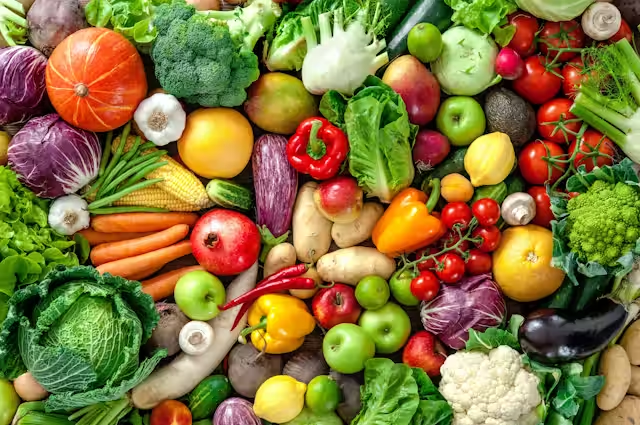Food: Nourishment, Culture, and Connection
Food is one of the most essential elements of life — not just for survival, but as a powerful symbol of culture, tradition, and identity. It fuels our bodies, shapes our communities, and brings people together in ways few other things can. From ancient cooking methods to modern culinary innovations, food continues to evolve while maintaining its role at the center of human experience.
The Role of Food in Our Lives
At its most basic level, food is fuel. Our bodies require nutrients — proteins, fats, carbohydrates, vitamins, and minerals — to function properly. A balanced diet contributes to physical health, mental clarity, energy levels, and emotional well-being.
But food is more than nutrition. It is comfort, pleasure, and memory. A homemade soup might remind someone of their grandmother’s kitchen. A certain spice may transport someone back to their childhood. Whether it’s a celebratory cake or a shared meal on a quiet night, food has the power to shape emotional experiences.
Food and Culture
Food is deeply rooted in culture. Every society has developed unique cuisines influenced by geography, climate, religion, and history. From the spicy curries of India to the delicate sushi of Japan, food expresses a community’s values and traditions.
Festivals and holidays around the world are often centered around special dishes. Think of Thanksgiving in the United States with turkey and pumpkin pie, or the variety of sweets prepared during Diwali in India. These foods are not just meals — they’re expressions of heritage and celebration.
As globalization increases, so does culinary exchange. Fusion cuisines are becoming popular, blending flavors and techniques from different cultures. While this offers exciting innovations, it also raises conversations about authenticity and cultural appropriation — reminding us to approach food with both curiosity and respect.
The Global Food Industry
The global food industry is massive, involving agriculture, transportation, processing, packaging, and retail. Supermarkets, restaurants, and online food delivery platforms serve billions of people every day.
However, this system is not without problems. Industrial farming, food waste, and over-reliance on processed foods have raised health and environmental concerns. Many processed items are high in sugar, sodium, and unhealthy fats, contributing to rising rates of obesity, diabetes, and heart disease.
On the flip side, movements such as organic farming, plant-based diets, and local food sourcing are gaining popularity. Consumers are becoming more conscious of where their food comes from, how it’s made, and its impact on health and the environment.
Sustainable Eating and Food Security
Sustainability is now a crucial consideration in food choices. Overfishing, deforestation for agriculture, and excessive use of water and pesticides threaten ecosystems and future food supplies. Sustainable eating involves making choices that reduce environmental impact, such as:
- Eating more plant-based meals
- Reducing food waste
- Choosing local and seasonal produce
- Supporting ethically raised animal products
Food security — the ability for all people to access sufficient, safe, and nutritious food — remains a global challenge. According to the UN, over 700 million people face hunger, while millions more suffer from malnutrition. Climate change, conflict, and economic inequality continue to affect food availability and distribution.
Innovative solutions, including urban farming, vertical agriculture, and food technology like lab-grown meat, are being explored to address these challenges and create a more sustainable food system.
Food and Technology
Technology has transformed how we grow, prepare, and consume food. Precision agriculture uses data and sensors to optimize crop yields while minimizing environmental impact. Apps and platforms help users track their nutrition, order groceries, or follow step-by-step cooking tutorials.
The rise of food delivery apps has made meals more accessible but also changed eating habits, increasing demand for convenience foods. Meanwhile, social media platforms like Instagram and TikTok have made food visual, influencing trends and promoting culinary creativity.
Food tech startups are pushing boundaries with meat alternatives made from plants, insects, or even lab-grown cells. These innovations aim to provide sustainable, ethical options for a growing population.
The Joy of Cooking
Cooking is both a practical skill and an art form. It allows individuals to experiment with flavors, express creativity, and connect with others. For many, cooking is therapeutic — a way to unwind, focus, and nourish loved ones.
With the increasing popularity of food blogs, cooking shows, and online classes, more people are rediscovering the joys of home cooking. From mastering the basics to exploring international recipes, learning to cook empowers people to take control of their health and lifestyle.
Conclusion
Food is fundamental — it sustains our bodies, preserves traditions, and brings people together. As the world continues to change, so too will the way we grow, prepare, and enjoy our meals. By embracing sustainable practices, celebrating cultural diversity, and making thoughtful food choices, we can ensure a healthier and more inclusive food future.
Whether you’re savoring a gourmet meal or enjoying a simple home-cooked dish, every bite tells a story. Food is not just about eating — it’s about living well, connecting deeply, and nourishing the body and soul.









Post Comment